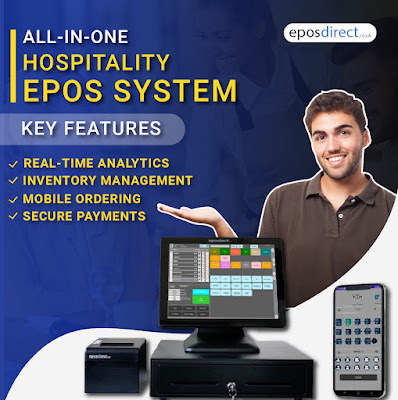The
importance of POS systems has increased significantly in recent times,
especially with the emergence of cloud-based POS systems. Therefore, it is no
longer enough to think of a point-of-sale system comparable to the retail till
system. These systems are now
smart service solutions that have the potential to fundamentally change
hospitality businesses.
Effective
use of point-of-sale systems allows businesses to quickly and conveniently
provide services to customers, allowing them to efficiently pay for goods and
services, using multiple methods – often without must go to a dedicated payment
area. However, the benefits of a point-of-sale system go beyond the customer
experience.
The use of
point-of-sale systems allows for instant and continuous communication between
different departments and even different branches of the same company. Systems
can help eliminate miscalculations and can also ensure that all parts of the
business have access to the most important information regarding inventory and
availability.
When used
to their full potential, point-of-sale systems can help with reporting, data
analysis, and many other internal processes critical to business success. Best
of all, the best epos system
for a restaurant can
improve employee productivity, eliminate unnecessary friction, automatically
apply special offers on purchases, and help with business
administration.
3
Pain points you may encounter when implementing a POS system in your business
When
implementing an epos system in a business in the hospitality industry, you may
encounter three main problems. In the sections below, you can learn more about
these and how to fix them.
1)
Define your business scope and the purpose of the epos system therein
First of
all, it is important to clarify that the goals of the point of sale system and
the selection criteria can vary depending on the size of the company. A small
local business operating out of a building may only need a simple system, but
if you are a hotel or restaurant chain, you may need a system that is
accessible from anywhere and managed from the outside. With that in mind, you
need to define your business, your goals, and why you need a point-of-sale
system.
2)
Define the functions you need from the point of sale, including analytics
Next, it's
important to use the scope you defined in the previous step to determine the
features you need from your epos
system for a cafe. Do you need
retail functionality? Takeaway feature? What about a webshop? Do you need
analytical tools? How much customization do you need? In this context, you must
also take into account your plans and the evolution of your needs over the
coming months and years.
3)
Train employees to use the point-of-sale system
While epos systems are a powerful tool in the hotel industry, they are not only useful for hospitality management. Your regular employees will have to use the till systems for hospitality daily, which requires training. However, you need to think about this holistically rather than just teaching employees how to use the offered features. How can an employee determine the payment period for an additional sale? Where can employees find product or service information? Try to train your employees to practically use the full range of tools they have.

